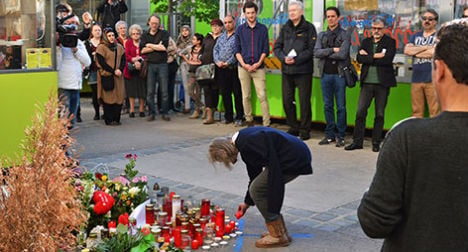The woman was brutally murdered early one morning in May, with an iron bar in Vienna’s Brunnenmarkt. 21-year-old Francis N. suddenly attacked and killed the mother-of-three as she was on her way to work with a colleague.
The authorities were criticised following the murder after it was revealed that Francis N. was an illegal immigrant – originally from Kenya – who was known to the police. He came to Austria legally in 2008 but overstayed his visa and had been reported for 18 previous offences since 2010.
In 2013 he spent some time in jail after being found guilty of coercion and causing bodily injury.
Just weeks before the murder, he was seen in the Hungerbergstrasse in Döbling, with his trousers around his ankles and an axe in his hand. Police noted the incident but did not arrest him.
Helfried Haas, the head of the special commission which investigated the case said that: “We had information about him but the various police departments didn’t share this information so there was no uniform picture which might have led to the conclusion that he was suffering from a mental illness and needed psychiatric help.”
Haas said that the commission will now work to make improvements in this area, including special psychiatric training for police officers.
The Federal Office for Asylum was aware that Francis N. was in Austria illegally and had ordered his deportation a few years ago but it had not been carried out.



 Please whitelist us to continue reading.
Please whitelist us to continue reading.